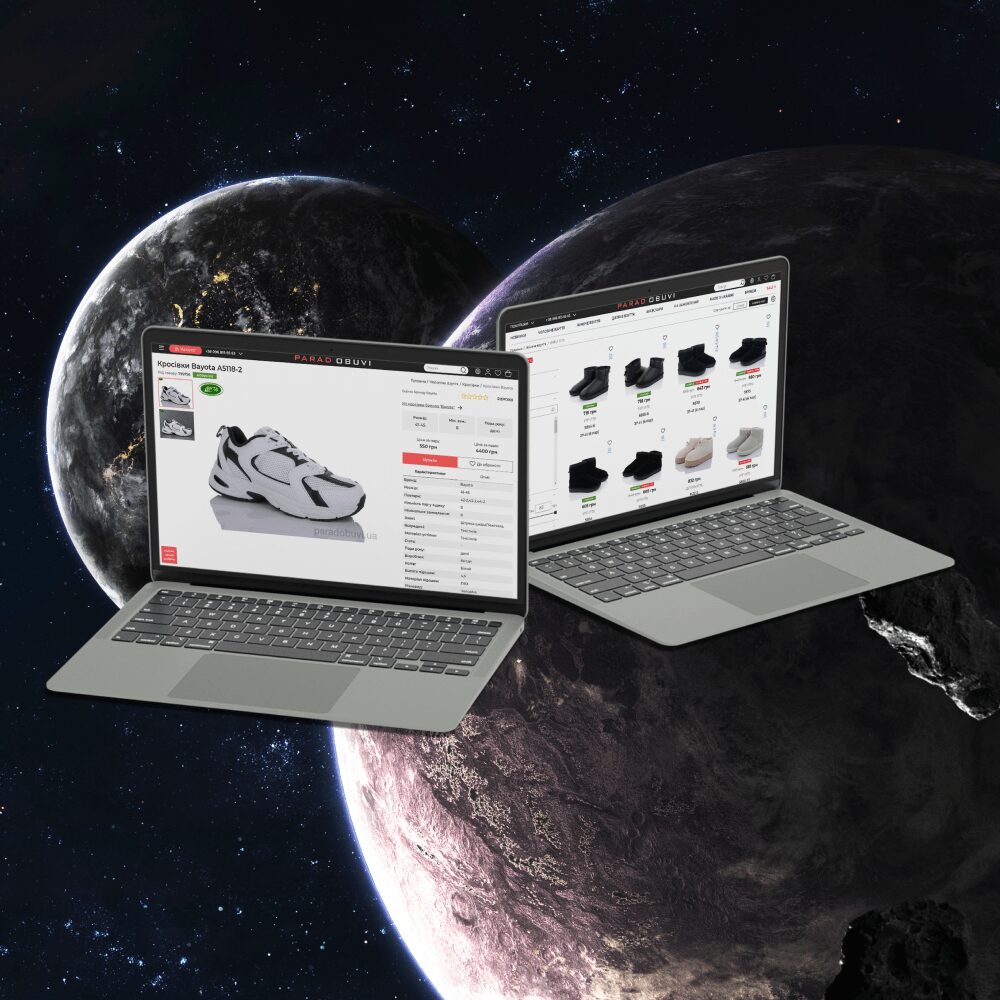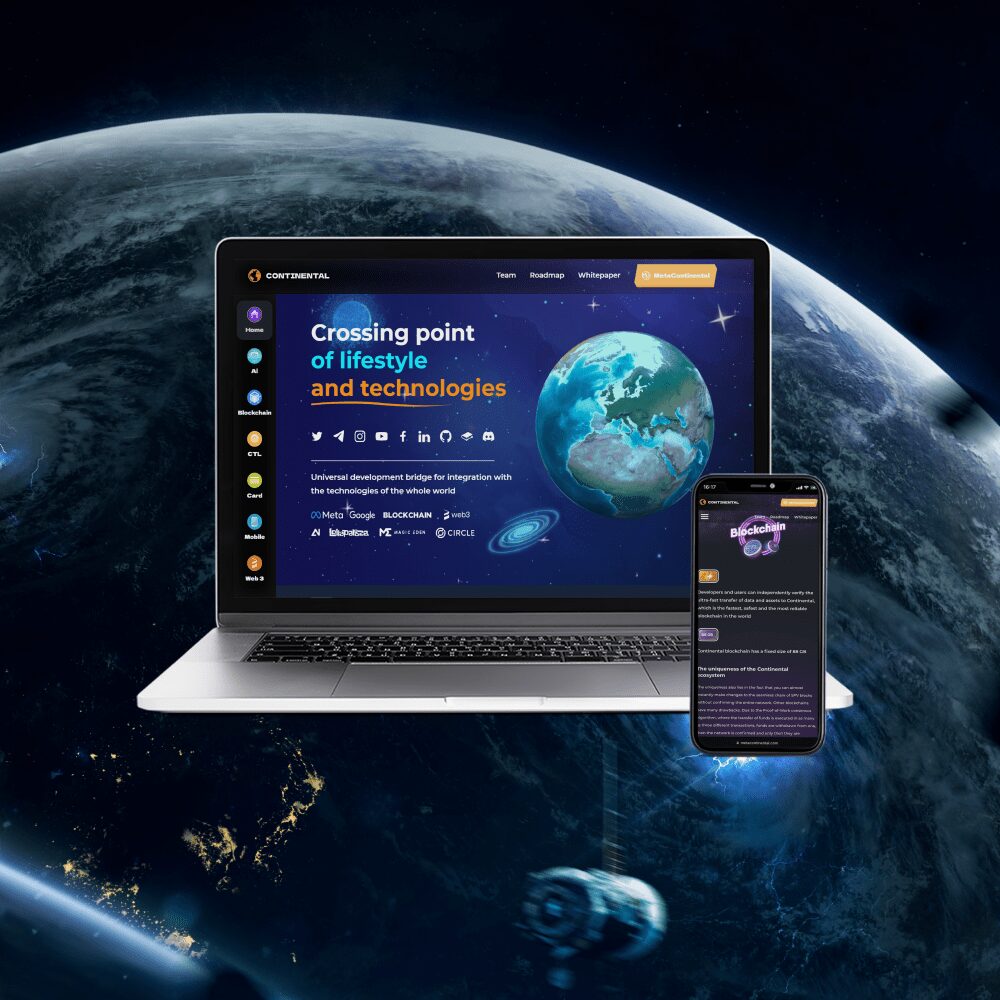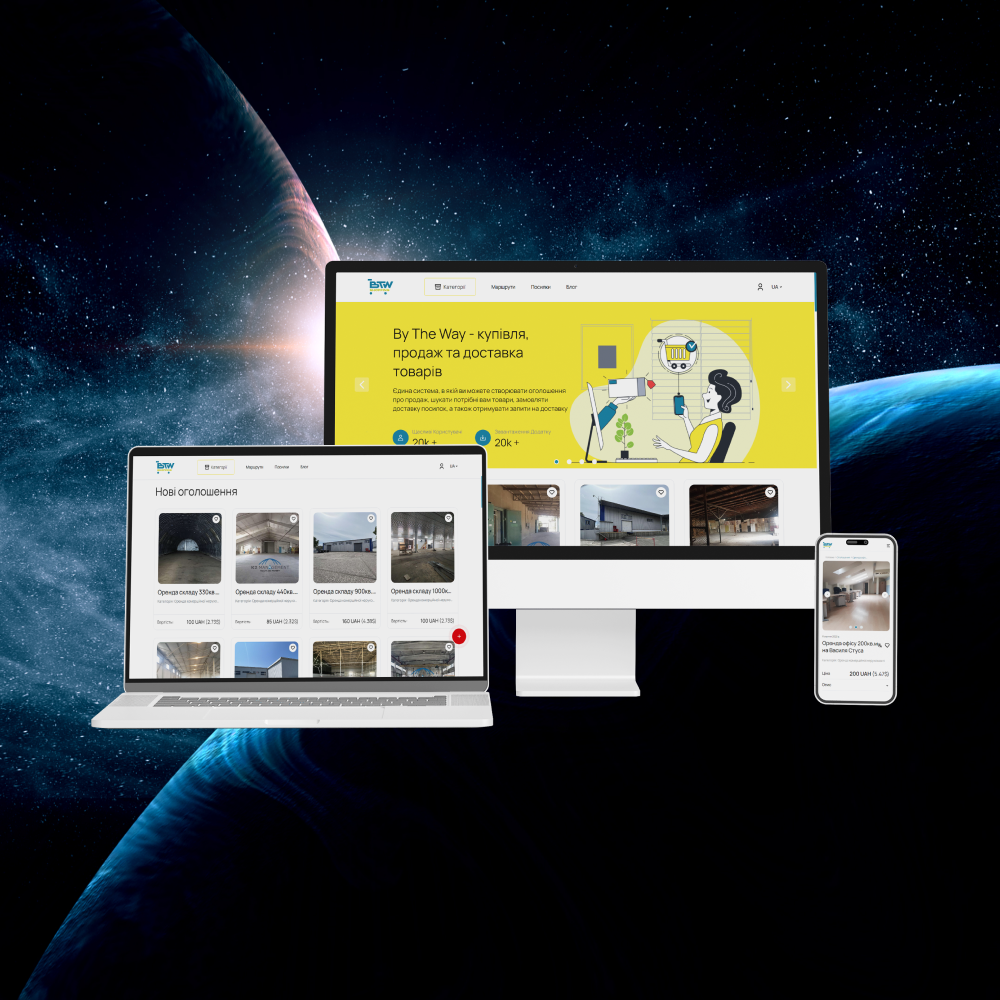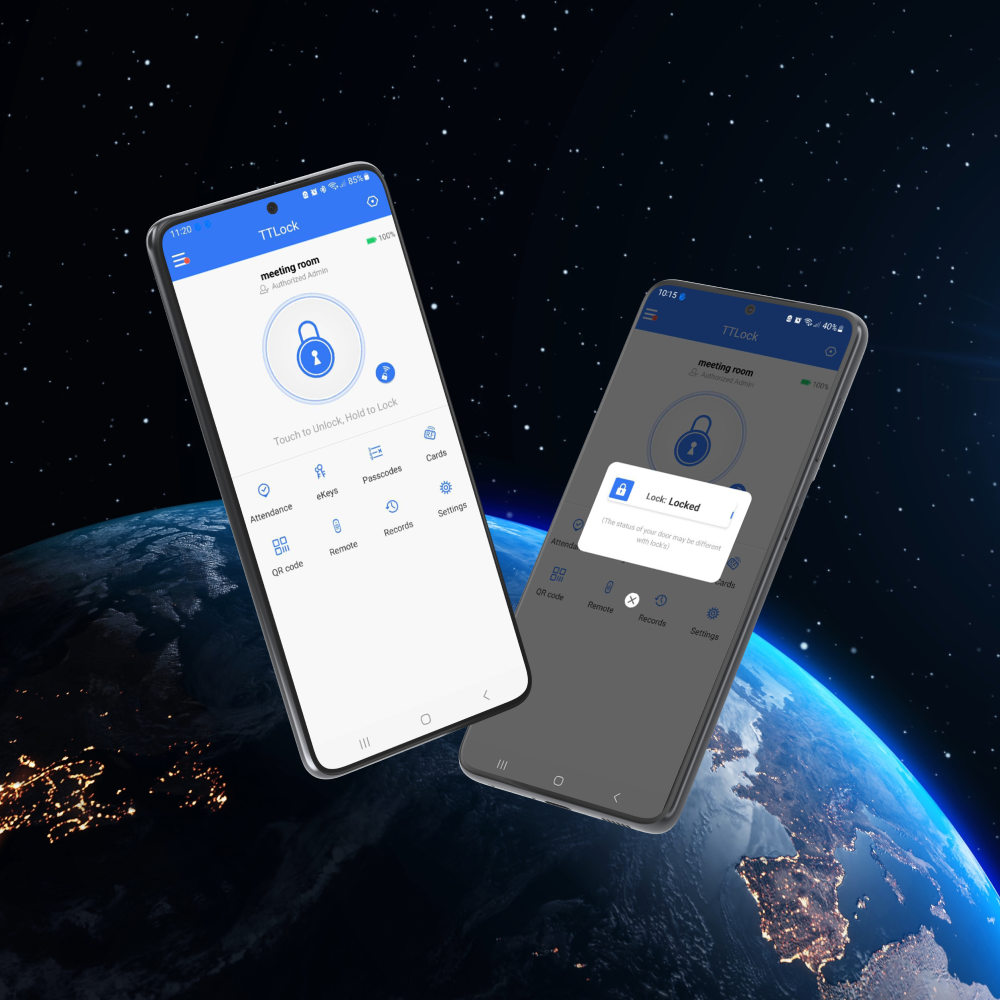Development of web systems for logistics in Java
Development of web systems for logistics in Java
Transport and LogisticsDevelopment of web systems for logistics in Java Transport and Logistics
Today it is difficult to imagine the creation of a profitable business without an effective logistics system.
Transportation of goods and their timely delivery to contractors and end users is extremely important, because it is increasingly difficult for companies to do without optimizing supply chains.
A web-based logistics system is a set of tools that allows you to track the location of goods, plan routes, forecast costs and manage inventory in warehouses. With its help, companies can minimize risks and improve the quality of customer service, which creates optimal conditions for business development.
Benefits of using a web-based logistics system
FunctionalityBenefits of using a web-based logistics system Functionality
To begin with, a web-based logistics system is software that runs in a browser interface and is independent of the operating system. This makes it flexible and available on different devices: laptops, PCs, smartphones and tablets.
As a result, such a system can be used not only by office employees, but also by personnel who are directly involved in logistics processes – drivers, forwarders, operators and loaders. This will significantly increase the manageability and controllability of logistics at all stages.
The functionality of a web-based logistics system can be quite wide, and is limited only by the needs of the business itself. Let’s take a closer look at the main modules that can be implemented:
- Choosing the best delivery method. The intelligent system can automatically determine the most profitable way for the company to deliver the cargo, taking into account its size, weight and route length. This will eliminate human errors and help reduce associated costs.
- Building a route. Delivery of goods is rarely carried out between two points, so the construction of optimal routes is an extremely important component in the organization of logistics.
- Organization of storage facilities. Rational use of warehouse space helps to optimize the processes of receiving and shipping goods, and also increases the capacity of the premises.
- Digital document management. The use of automated logistics systems allows businesses to completely abandon paper in their workflow. As a result, the reduction of bureaucracy will lead to faster logistics and better customer service.
- Online cargo monitoring. Using the web-based logistics system, company employees can monitor the location and conditions of transportation of goods in real time – temperature, air humidity and other characteristics. This is very important for businesses dealing with perishable products.
- Maintenance. When there are dozens of vehicles in the company’s fleet, it is quite difficult to keep track of the timing of scheduled maintenance. The logistics system can control this issue and notify responsible employees in advance of the approaching TO.
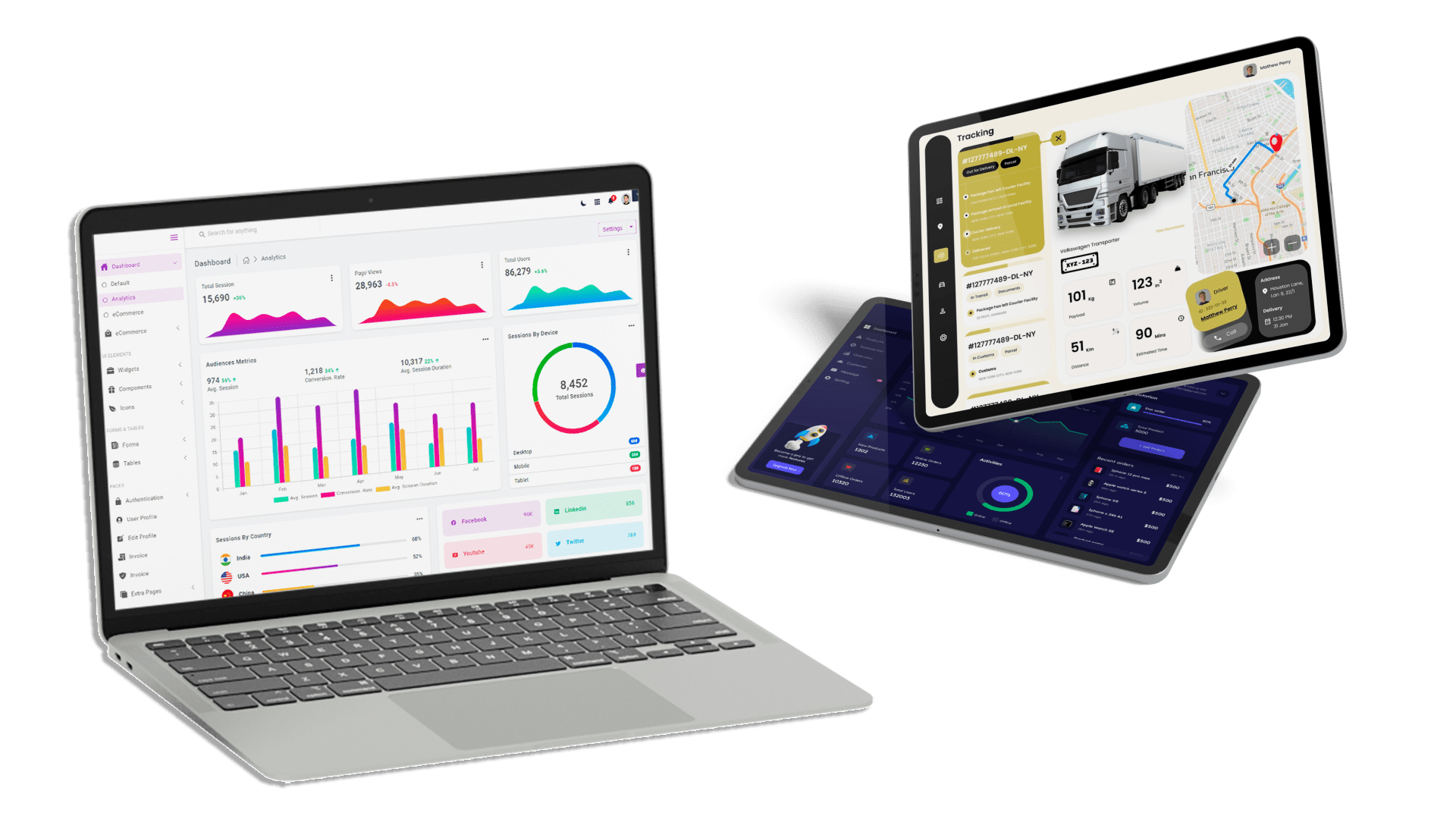
Why you should use Java to develop logistics systems
Benefits of JavaWhy you should use Java to develop logistics systems Benefits of Java
When it comes to creating web-based logistics systems, the first thing to do is to determine the technologies that will be used for development. There are several options here: PHP, Python, various frameworks and, of course, the Java language.
Java consistently ranks among the top five most in-demand programming languages in the world. It has existed for more than 25 years and is mainly used in the implementation of large corporate projects. Java has really many advantages, we list the main ones:
- Performance. Java is ideal for projects with a lot of complex mathematical calculations, and provides them with fast calculation.
- Cybersecurity. Java is memory safe and even allows operating system resources to detect malware.
- Efficient networking capabilities. Java has a wide range of tools for transferring data using the most popular protocols: FTP, HTTP, TCP/IP. Thanks to this, applications can find the desired objects on the network as quickly as in a conventional file system.
- Microservice architecture. A Java web application consists of independently working modules. Accordingly, this allows you to deploy and update each module of the system separately, which increases the reliability and stability of the project.
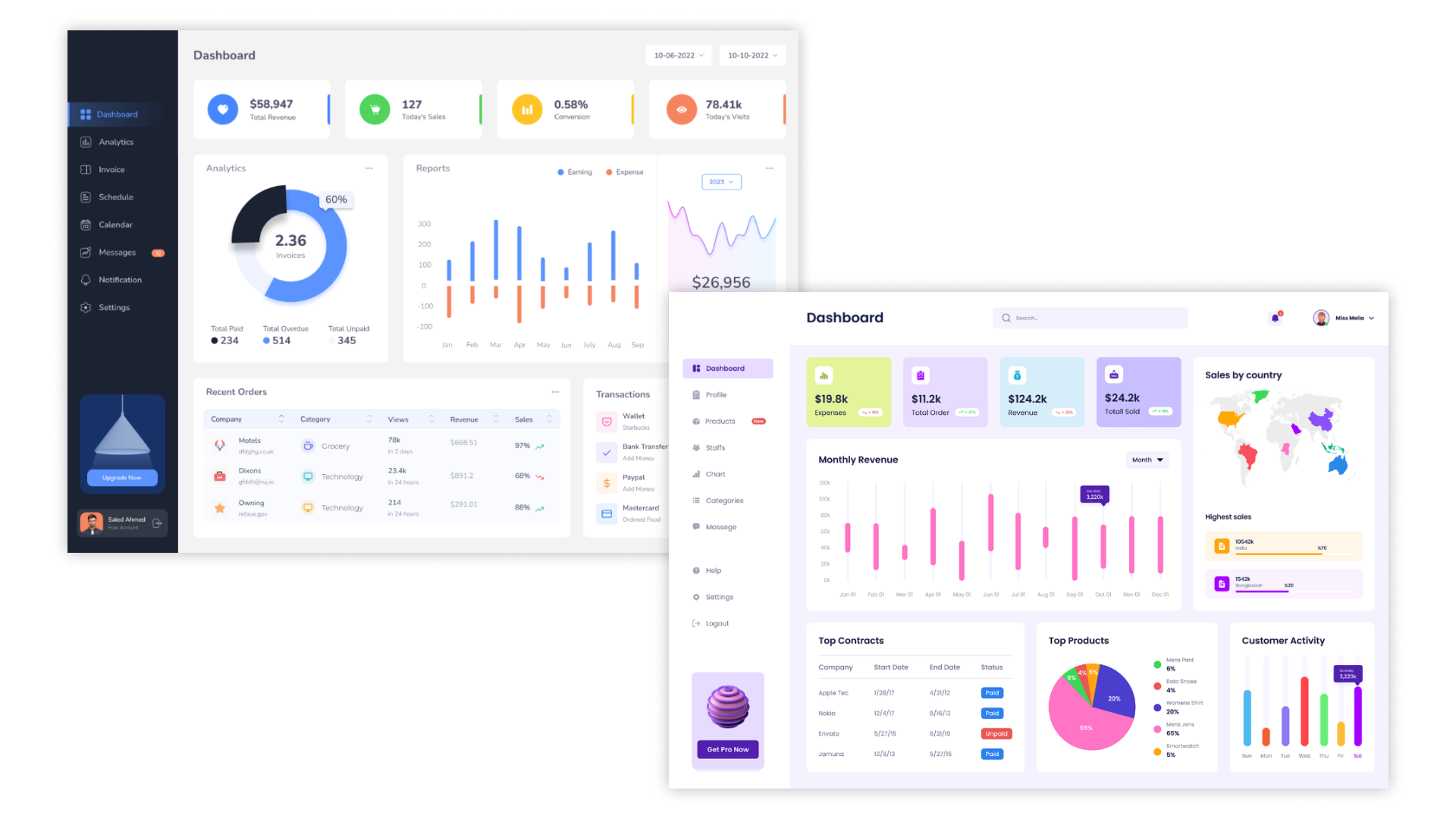
How web logistics systems are developed
Stages of DevelopmentHow web logistics systems are developed Stages of Development
The development of logistics systems is carried out according to the Scrum methodology – all tasks are implemented in short sprints of up to 2-4 weeks, which are then approved with the customer. This approach ensures good communication between the client and the team, and allows finding the best technical solutions.
In addition to methodologies, there are also development stages that represent the life cycle of a product. Here are six of the main ones.
Stage 1. Analytics and research
Immersion in the client’s business plays an important role in the creation of logistics systems. Therefore, development always starts with research.
At this stage, developers need to study how supply chains work in the customer’s company, determine the requirements and wishes of the customer regarding the new system, as well as his experience with similar solutions.
Stage 2. Design and development of documentation
There is an opinion that design makes the development process longer and more expensive. But in practice, everything is just the opposite – it helps to save not only money, but also the time spent on creating a quality product. Design allows:
- Explore new ideas and experiment with different solutions to determine the best design concept.
- Detect and fix issues before technical development begins.
- Fix interface usability issues.
- More precisely, evaluate the project.
Thanks to the design stage, the customer can see at an early stage how exactly his systems will work. As a result, he is guaranteed to receive the desired product that meets the challenges facing his business.
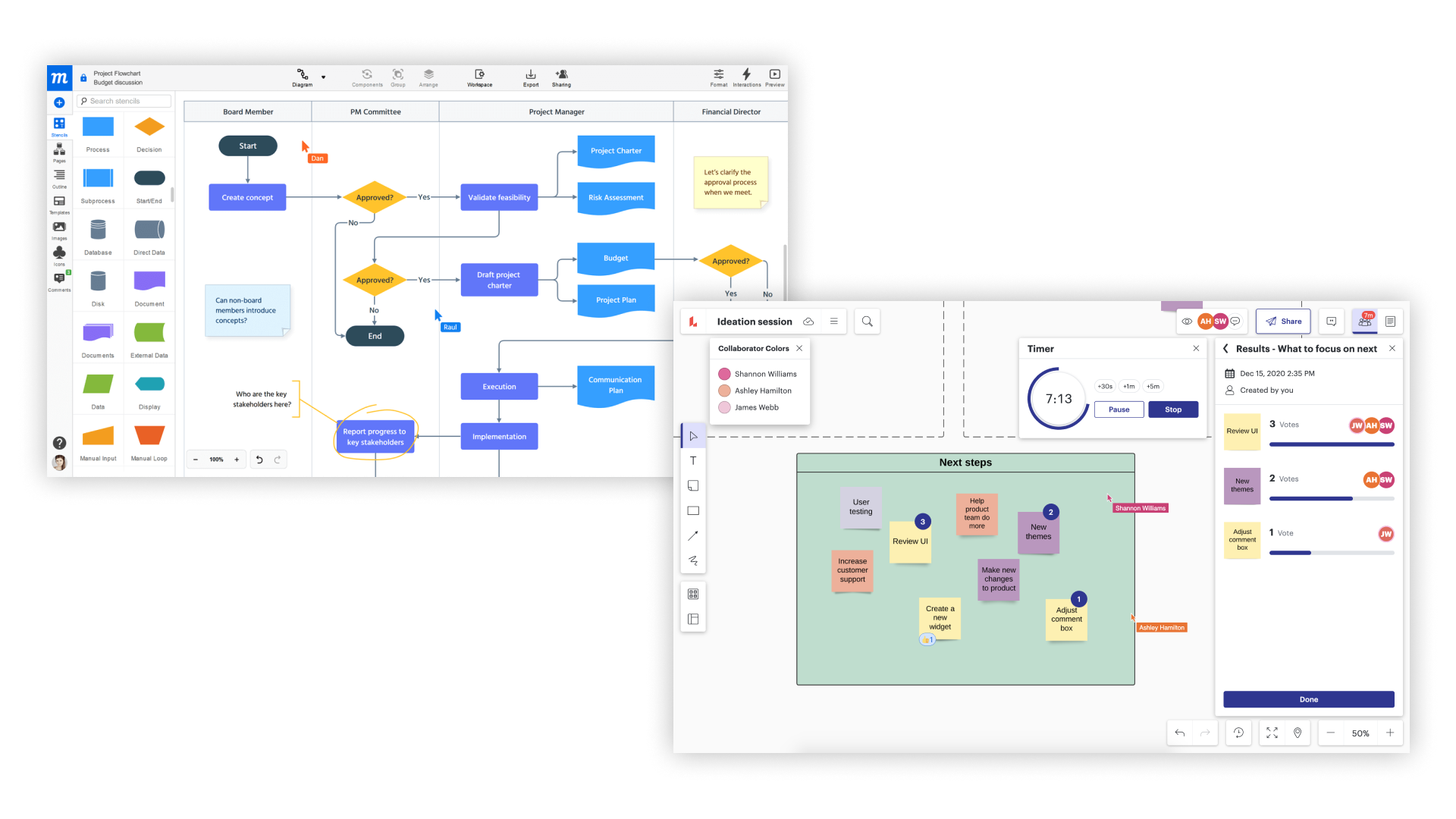
Stage 3. Design development
As we have already said, a web-based logistics system can work on different devices. Therefore, designers are faced with the task of creating a thoughtful and user-friendly interface that will be correctly displayed at any screen resolution. Most often, the design of such projects is created individually, taking into account their functional features.
Stage 4. Programming
During technical development, the logistics system goes through the main part of its life cycle. In fact, at this stage, all the functionality of the project and its user part are implemented – backend and frontend, respectively. And now a little more:
- Frontend. This is the part of the web application that the user interacts with on the client side. During its implementation, layout is performed, animations, transitions, event handlers and other tools are created that make working with the system comfortable. In this case, such technologies can be used: static HTML / CSS / JavaScript or reactive – Vue.js / React.js.
- Backend. This part of the project is implemented in Java and is responsible for data processing and storage. At this stage, developers write functional code, set up couriers, organize database architecture, and perform integrations with various external services via APIs.
Stage 5. Testing
After the technical development is completed, it is important to make sure that all modules of the logistics system work not only correctly, but also as it was intended at the design stage. This part of the work is performed by QA engineers.
Stage 6. Technical support and development
Release does not mean the end of the technical work on the project. The fact is that after the start of using the system in real conditions, users for some time may still encounter some technical errors that could not be identified earlier.
Therefore, in order to promptly correct such problems, the logistics system is connected to technical support.
In addition, over time, a business may need additional, more advanced functionality. The Java logistics system can be modified and improved an unlimited number of times, so there will be no difficulties with the implementation of such changes. For these purposes, developers design and release patches with updates, which are then simply installed into an existing environment.
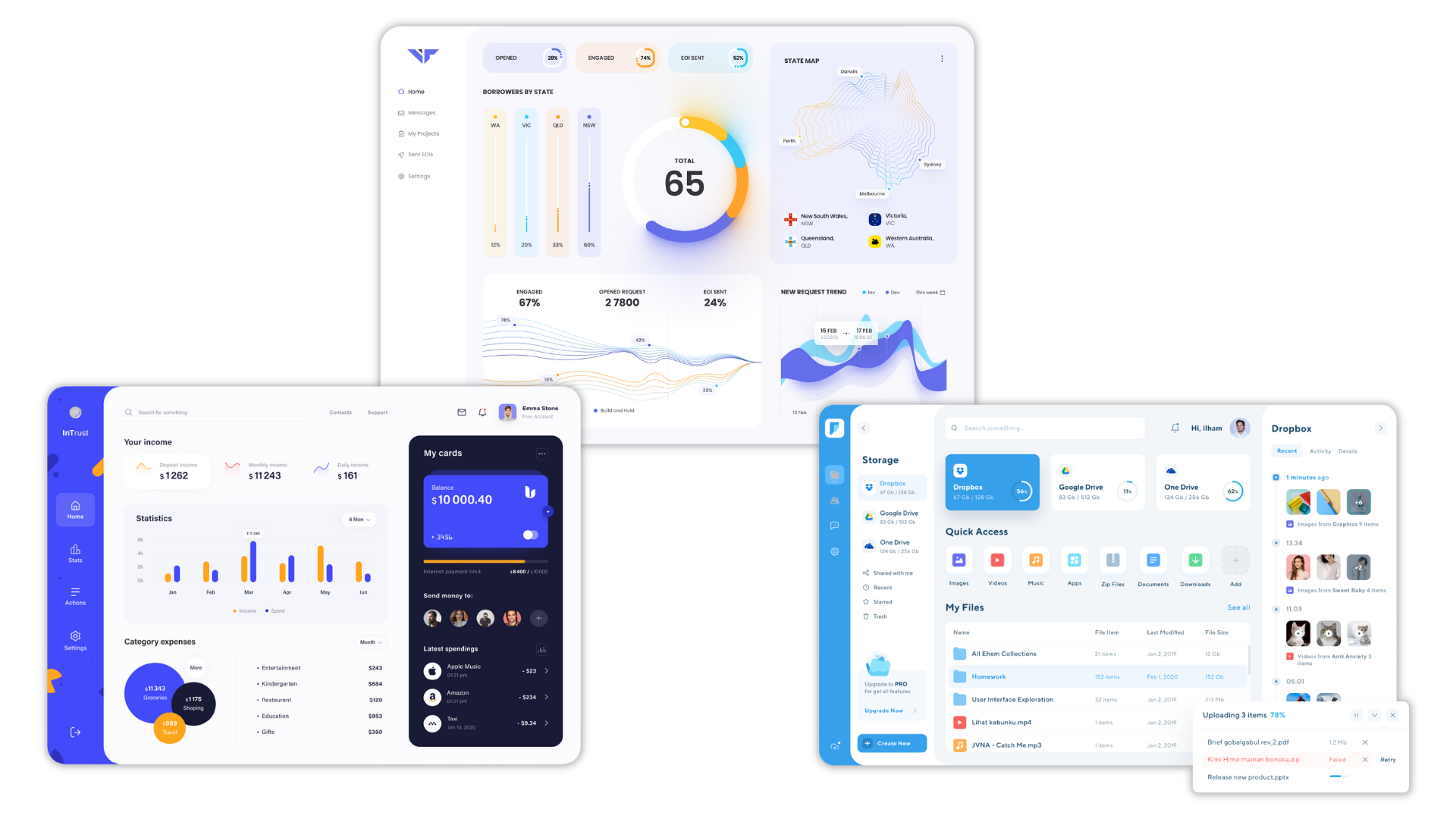
Development of web-based logistics systems in Java at AVADA MEDIA
Development of web-based logistics systems in Java at AVADA MEDIA
By investing in the development of a logistics system, you will start saving money by optimizing supply chains, and you will be able to earn more by improving the quality of service and attracting new customers. In simple words, this is an investment that will lead to the growth of your business.
AVADA MEDIA has extensive experience in the development of logistics systems.
To implement them, we can use not only the Java language, but also other innovative technologies – the choice of a stack depends on the features and functionality of each individual project.
We also believe that technology alone is not enough to achieve a good product – effective communication plays an equally important role. Therefore, while working on a project, our specialists are always in touch with the client – they discuss opportunities, implement ideas and process feedback.
Fresh works
We create space projectsFresh works
The best confirmation of our qualifications and professionalism are the stories of the success of our clients and the differences in their business before and after working with us.
Our clients
What they say about usOur clients What they say about us
Successful projects are created only by the team
Our teamSuccessful projects
are created only by the team Our team












Contact the experts
Have a question?Contact the experts Have a question?
-
Phone:+ 38 (097) 036 29 32
-
E-mail:info@avada-media.com.ua

